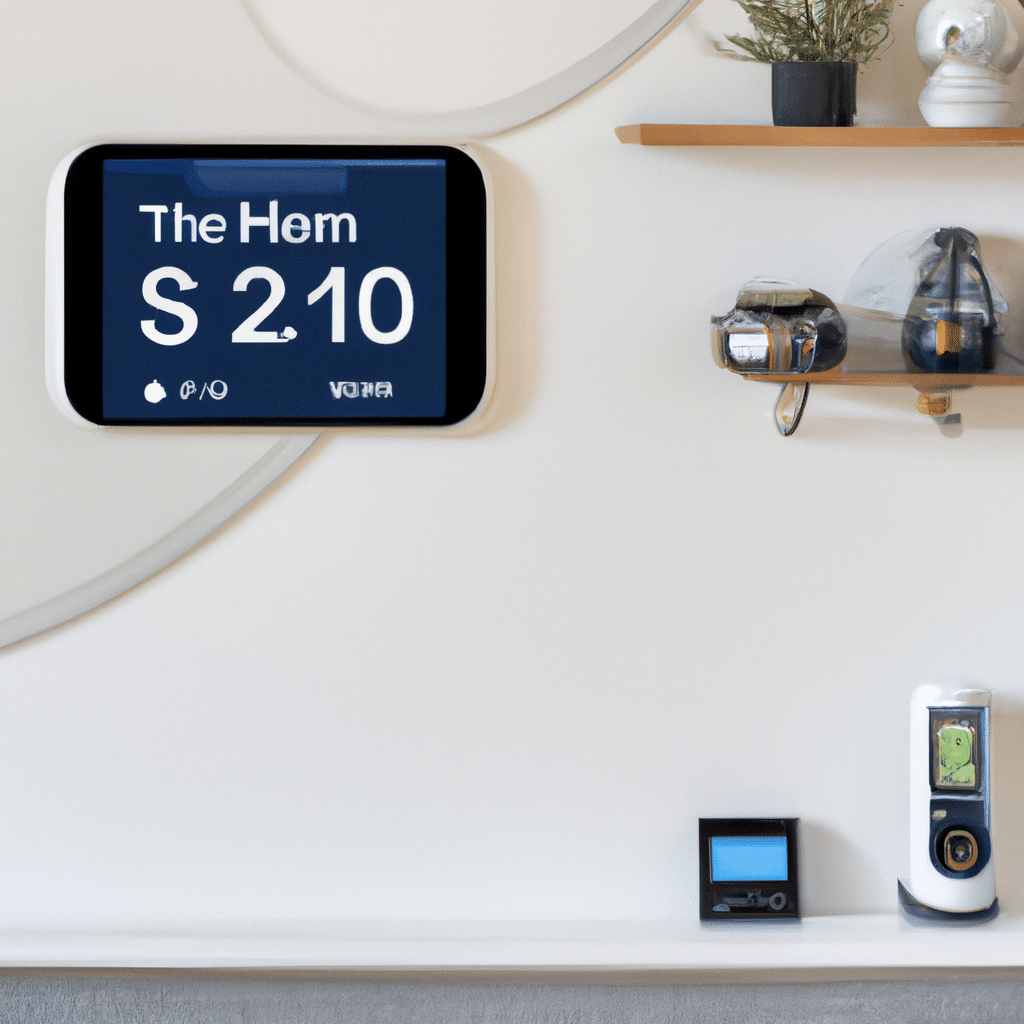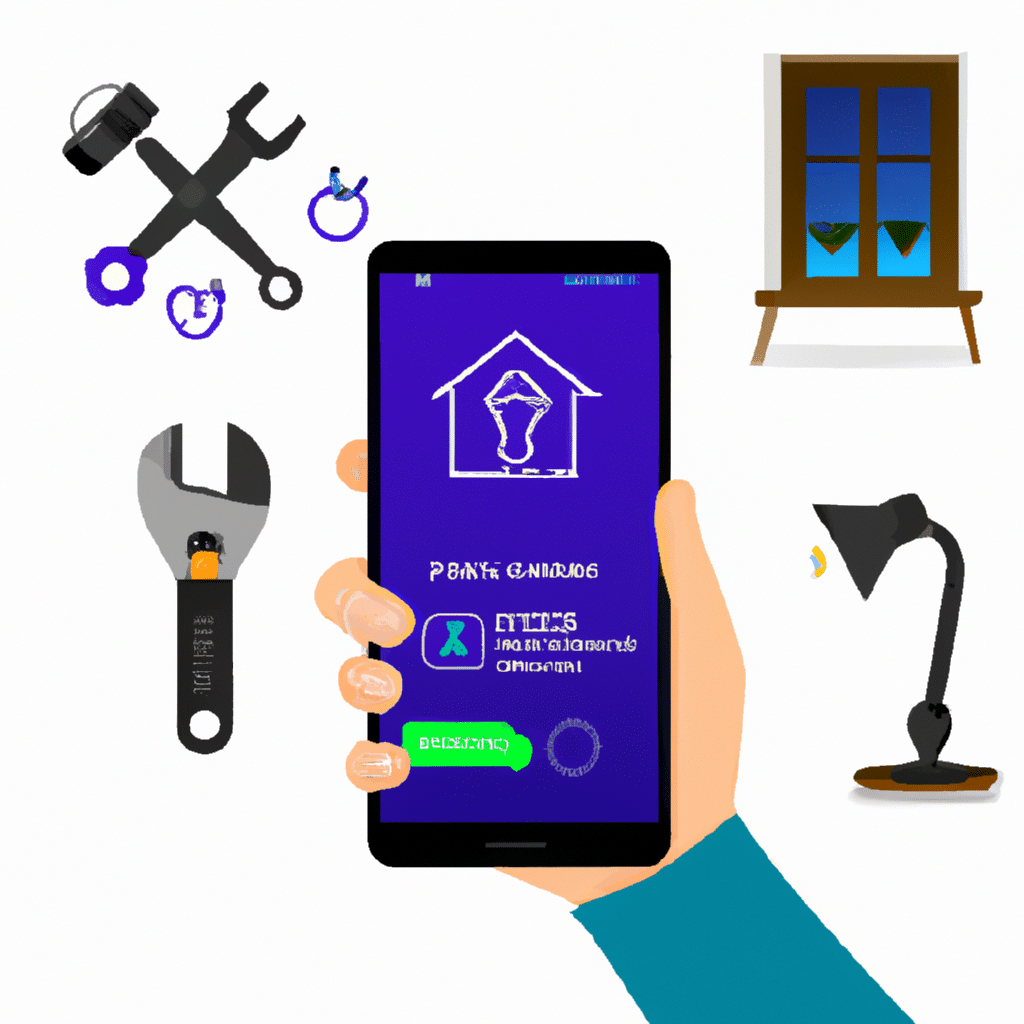
Smart home voice assistants have revolutionized the way we interact with our homes, offering convenience and efficiency at our fingertips. From Siri to Alexa and beyond, these voice-controlled virtual assistants have become an integral part of our daily lives. In this comprehensive guide, we will delve into the world of smart home voice assistants, exploring their features, benefits, and how to get started with them. Whether you are a tech-savvy individual or a novice in the world of smart homes, this article will provide you with all the information you need to make the most of these incredible devices.
Table of Contents
- Introduction to Smart Home Voice Assistants
- Popular Voice Assistants: Siri, Alexa, Google Assistant, and More
- Setting Up Your Smart Home Voice Assistant
- Voice Assistant Skills and Capabilities
- Integrating Voice Assistants with Other Smart Home Devices
- Voice Assistant Privacy and Security Concerns
- Future of Smart Home Voice Assistants
- Conclusion
Introduction to Smart Home Voice Assistants
Smart home voice assistants are AI-powered devices that respond to voice commands, allowing you to control various aspects of your home environment effortlessly. These devices utilize natural language processing and machine learning algorithms to understand and execute your requests.
Gone are the days when you had to physically interact with multiple devices to control your home’s lighting, temperature, security, and entertainment systems. With a smart home voice assistant, you can simply speak your commands, and the assistant will carry them out for you.
Popular Voice Assistants: Siri, Alexa, Google Assistant, and More
When it comes to smart home voice assistants, Siri, Alexa, and Google Assistant are the leading players in the market. Each of these voice assistants has its unique features and capabilities, catering to different user preferences.
-
Siri is Apple’s intelligent personal assistant, available on iPhones, iPads, and HomePod devices. It integrates seamlessly with other Apple products and services, allowing you to control your home using your Apple ecosystem.
-
Alexa is Amazon’s voice assistant, found in a range of devices such as the Echo, Echo Dot, and Echo Show. Alexa boasts a vast library of skills and can connect with a wide array of smart home devices, making it a versatile choice for homeowners.
-
Google Assistant is Google’s voice-activated assistant, available on Android smartphones, Google Home devices, and other smart speakers. It leverages Google’s powerful search capabilities and offers robust integration with Google services and third-party devices.
Apart from these leading voice assistants, there are also other notable contenders in the market, such as Microsoft’s Cortana and Samsung’s Bixby. Each voice assistant has its strengths and weaknesses, so it’s important to consider your specific needs and preferences before choosing one.
Setting Up Your Smart Home Voice Assistant
Getting started with a smart home voice assistant is a straightforward process. Here are the general steps to set up your voice assistant:
-
Choose the right device: Select a device that suits your needs and budget. Consider factors such as device compatibility, audio quality, and additional features like display screens or built-in smart home hubs.
-
Power up the device: Plug in your voice assistant device and ensure it has a stable internet connection. Most voice assistants require a Wi-Fi connection to function properly.
-
Download the companion app: Install the companion app for your voice assistant on your smartphone or tablet. This app will serve as the control center for your voice assistant and allow you to customize settings and add new skills.
-
Connect to your home network: Follow the app’s instructions to connect your voice assistant device to your home Wi-Fi network. This step is crucial as it enables your voice assistant to communicate with other smart devices in your home.
-
Configure preferences and settings: Use the companion app to personalize your voice assistant’s settings. This includes setting up your preferred language, linking your accounts (e.g., music streaming services), and granting necessary permissions.
-
Start interacting: Once your voice assistant is set up, you can start interacting with it by using the wake word or phrase designated for your specific assistant. For example, saying “Hey Siri” to an Apple device or “Alexa” to an Amazon Echo.
Voice Assistant Skills and Capabilities
Smart home voice assistants come with a wide range of skills and capabilities that enhance your daily living experience. These skills allow you to control various aspects of your home, access information, and even entertain yourself. Here are some common skills and capabilities offered by voice assistants:
-
Home automation: Voice assistants can control smart home devices such as lights, thermostats, door locks, and security cameras. You can simply ask your voice assistant to turn on the lights or adjust the temperature without lifting a finger.
-
Information retrieval: Voice assistants can provide real-time information on weather updates, news headlines, sports scores, and more. Simply ask your voice assistant for the information you need, and it will fetch it for you.
-
Smart reminders and alarms: You can set reminders and alarms using voice commands. Whether you need a wake-up alarm, a reminder to take medication, or a timer for cooking, your voice assistant can handle it all.
-
Music streaming: Voice assistants can connect to popular music streaming services and play your favorite songs, artists, or playlists on demand. You can also control the volume and skip tracks using voice commands.
-
Voice-controlled shopping: Some voice assistants allow you to shop for products from online retailers using just your voice. You can add items to your shopping list, place orders, and even track deliveries.
These are just a few examples of the many skills and capabilities offered by smart home voice assistants. The range of available skills continues to expand as developers create new integrations and functionalities.
Integrating Voice Assistants with Other Smart Home Devices
One of the key advantages of smart home voice assistants is their ability to integrate with a wide range of smart home devices. This integration allows you to create a cohesive and interconnected smart home ecosystem. Here are some popular smart home devices that can be seamlessly integrated with voice assistants:
-
Smart lights: Voice assistants can control smart light bulbs, allowing you to adjust the brightness, color, and even create lighting schedules using voice commands.
-
Smart thermostats: You can use your voice assistant to control the temperature settings of compatible smart thermostats. This enables you to adjust the temperature without leaving your seat.
-
Smart locks: Voice assistants can lock and unlock compatible smart locks, providing you with convenient access control for your home.
-
Security cameras: Some voice assistants can display live camera feeds from compatible security cameras on devices with screens. You can simply ask your voice assistant to show you the camera feed from your front door or backyard.
-
Smart speakers: Apart from controlling other devices, voice assistants are also embedded in smart speakers, providing high-quality audio playback and voice control capabilities.
Integrating your voice assistant with compatible smart home devices allows you to create customized routines and automate various tasks. For example, you can create a “Goodnight” routine that turns off the lights, locks the doors, and adjusts the thermostat, all with a single voice command.
Voice Assistant Privacy and Security Concerns
While smart home voice assistants offer immense convenience, it’s essential to consider privacy and security concerns associated with these devices. Here are some key considerations to keep in mind:
-
Data collection: Voice assistants collect and store your voice commands and interactions to improve their performance and personalize your experience. Ensure you review the privacy policies and data handling practices of your voice assistant provider.
-
Microphone privacy: Voice assistants are always listening for their wake word, which means they are constantly capturing audio. Be aware of the potential privacy implications and consider the option to mute or disable the microphone when not in use.
-
Secure network: Protect your voice assistant and smart home devices by securing your home Wi-Fi network with a strong password and regularly updating the firmware of your devices.
-
Third-party skills and integrations: When enabling third-party skills or integrating with other services, review the permissions and access levels requested by these applications. Be cautious about granting unnecessary access to your personal information.
By being mindful of these privacy and security concerns, you can enjoy the benefits of smart home voice assistants while maintaining control over your personal data.
Future of Smart Home Voice Assistants
As technology continues to advance, the future of smart home voice assistants looks promising. Here are some potential developments we can expect to see:
-
Improved natural language processing: Voice assistants will become even better at understanding complex commands and conversational interactions, making them more intuitive to use.
-
Enhanced compatibility: Voice assistants will continue to expand their compatibility with a broader range of smart home devices and services, allowing for seamless integration and interoperability.
-
Personalized experiences: Voice assistants will become more adept at recognizing individual voices, allowing for personalized responses and tailored experiences for each user.
-
Expanded skill sets: Developers will continue to create new skills and capabilities for voice assistants, enabling them to perform a wider array of tasks and provide more specialized services.
-
Integration with emerging technologies: Voice assistants will integrate with emerging technologies such as augmented reality, virtual reality, and Internet of Things (IoT), creating new possibilities for immersive and interconnected smart home experiences.
The future holds immense potential for smart home voice assistants, and we can expect them to become even more integral to our daily lives.
Conclusion
Smart home voice assistants have transformed the way we interact with our homes, offering unparalleled convenience and control. From Siri to Alexa and Google Assistant, these AI-powered virtual assistants have become indispensable companions in the world of smart homes. In this comprehensive guide, we explored the features, benefits, and setup process of smart home voice assistants. We also discussed their skills and capabilities, integration with other smart devices, privacy and security concerns, and the future of this rapidly evolving technology.
By following the steps outlined in this guide, you can embark on your smart home journey and harness the full potential of smart home voice assistants. Whether it’s controlling your lights, streaming music, or accessing information, your voice assistant is ready to assist you, making your life more convenient and enjoyable. Embrace the power of smart home voice assistants and unlock a whole new level of smart living.






